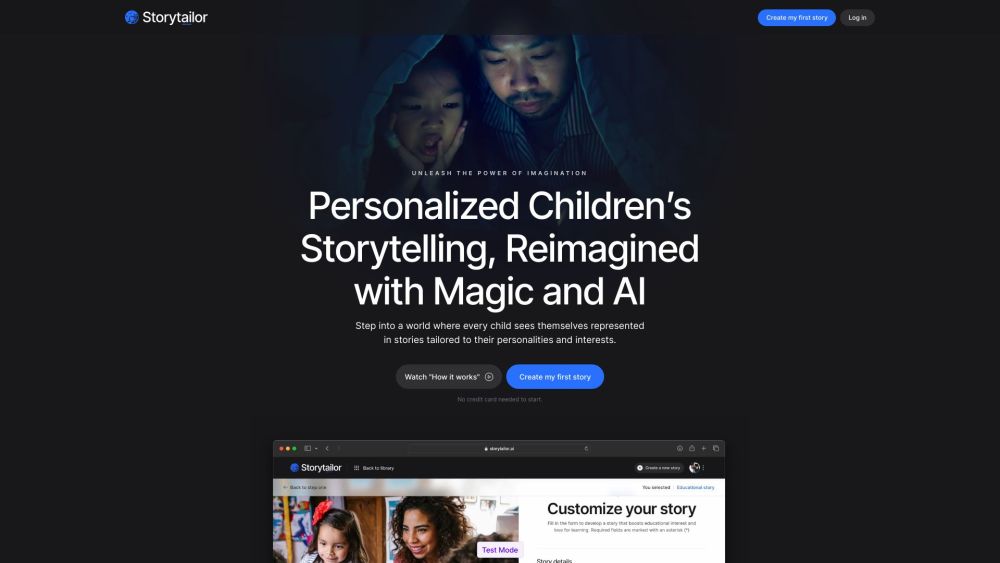(NOTE: Dear Mom, Dear Dad, the details of the website is embedded in the article)
“I hate mathematics”, said my wife. “That is because you had a bad maths teacher”, I responded.
This conversation has been oft repeated in our household. What was “bad” about her math teacher was no narratives just numbers. Mine told stories. Real-world application stories, historical stories, biographical stories etc.
My belief that teachers should have story skills has always been there what surprised me pleasantly is the numerous research on how children who learn story skills get better at math. Really!.
The link between learning storytelling as a child and its impact on language development, comprehension skills, and vocabulary is not only well-researched but also intuitively obvious (details of a few research studies are shared at the end of this blog piece). But the link between a child’s storytelling skills and mathematics skill development, particularly in terms of cognitive and problem-solving abilities, was a pleasant surprise. (Again, details of a few research studies are shared at the end of this blog piece).
One study that caught my eye was the research paper “Narrative Skills Predict Math Achievement in Kindergarten and First Grade“. That study sheds light on the previously understudied connection between narrative abilities and math achievement in young children. The findings suggest that children with stronger narrative skills in kindergarten are more likely to perform better in math in both kindergarten and first grade. This correlation persists even after accounting for various factors, emphasising the potential importance of narrative skills in early mathematics education.
The study highlights the cognitive demands and problem-solving aspects shared by storytelling and math, suggesting that narrative-based activities may have a positive impact on both domains. Furthermore, it suggests that integrating narrative elements into math instruction could be a promising approach to enhancing mathematical learning in young children.
It is in space the news about a new startup in the US that has developed an AI algorithm to help parents tell stories was so exciting – www.storytailor.ai. It’s a cool AI tool that’s all about making stories for kids between 3 and 8 years old. What’s neat is that you can pick the kind of story you want, whether it’s something that tugs at the heartstrings or teaches a lesson.
And you can tweak the stories to fit what your kid likes. Change up the characters, where the story happens, the theme, and even the mood of the story. It’s like being a story chef, mixing and matching ingredients!
Plus, you’re not stuck with just one story. You can create sequels, so the fun keeps going. The AI in Storytailor isn’t just spinning yarns; it’s sparking imagination and learning.
Each story comes with its special artwork, titles that grab you, and fun activities. It’s more than just reading; it’s about exploring language, building skills, and helping kids grow emotionally. Pretty cool, right?
So Mom and Dad, go ahead and tell stories to your children. It is the best way for them to learn story skills and guess what – they might just love mathematics 🙂
—References—-
RESEARCH ABOUT THE IMPACT OF LEARNING STORY SKILLS AS A CHILD ON LANGUAGE DEVELOPMENT, COMPREHENSION SKILLS, AND VOCABULARY
“The Power of Storytelling: Using Storytelling to Improve Literacy Learning” (Published in Reading Teacher, 2006)
Authors: Susan W. Mills and Jennifer LeJeune
Summary: This study explores the use of storytelling as a strategy to enhance literacy skills in elementary school students. It discusses how storytelling can improve reading comprehension, vocabulary development, and writing skills.
“Effects of Storytelling on the Vocabulary Learning and Comprehension of African American Preschoolers” (Published in Reading Psychology, 2015)
Authors: April K. Dillon and Jamie M. Quinn
Summary: This research examines the impact of storytelling on the vocabulary acquisition and comprehension skills of preschool-aged African American children. It discusses the positive outcomes of incorporating storytelling into early education.
“The Effects of Storytelling on Preschool Children’s Language Development” (Published in Early Child Development and Care, 2016)
Authors: Yunna Wu and Wai Han Ng
Summary: This study investigates how storytelling influences language development in preschool children. It discusses improvements in vocabulary, syntax, and narrative skills resulting from exposure to storytelling.
“Storytelling and Story Reading: A Comparison of Effects on Children’s Memory and Story Comprehension” (Published in Early Child Development and Care, 2009)
Authors: Youngsik Hwang and Yi Jin Kim
Summary: This study compares the effects of storytelling and story reading on children’s memory and comprehension. It discusses how storytelling can enhance children’s retention of story content.
RESEARCH ABOUT THE IMPACT OF LEARNING STORY SKILLS AS A CHILD ON MATHEMATICS ABILITY
“Narrative Skills Predict Math Achievement in Kindergarten and First Grade” (Published in Developmental Science, 2018)
Authors: Marianna Eddy, Carol McDonald Connor, et al.
Summary: This study suggests a link between narrative skills and early math achievement in kindergarten and first-grade children. It found that children with stronger narrative skills tend to perform better in math, potentially due to enhanced cognitive abilities related to story comprehension.
“The Effects of Storytelling on Mathematical Problem-Solving Performance” (Published in the Journal of Research in Education and Science, 2019)
Authors: Hüseyin Tatar and Zekeriya Kürüm
Summary: This research investigates the impact of storytelling on mathematical problem-solving performance in primary school children. It suggests that storytelling can positively affect problem-solving abilities, which are important in mathematics.
“Storytelling Enhances Pre-Schoolers’ Numeracy Performance” (Published in Early Child Development and Care, 2017)
Authors: Robin Samuel, John Willison, et al.
Summary: This study explores how storytelling can enhance numeracy performance in preschool children. It suggests that storytelling activities that incorporate mathematical concepts can contribute to early numeracy development.

